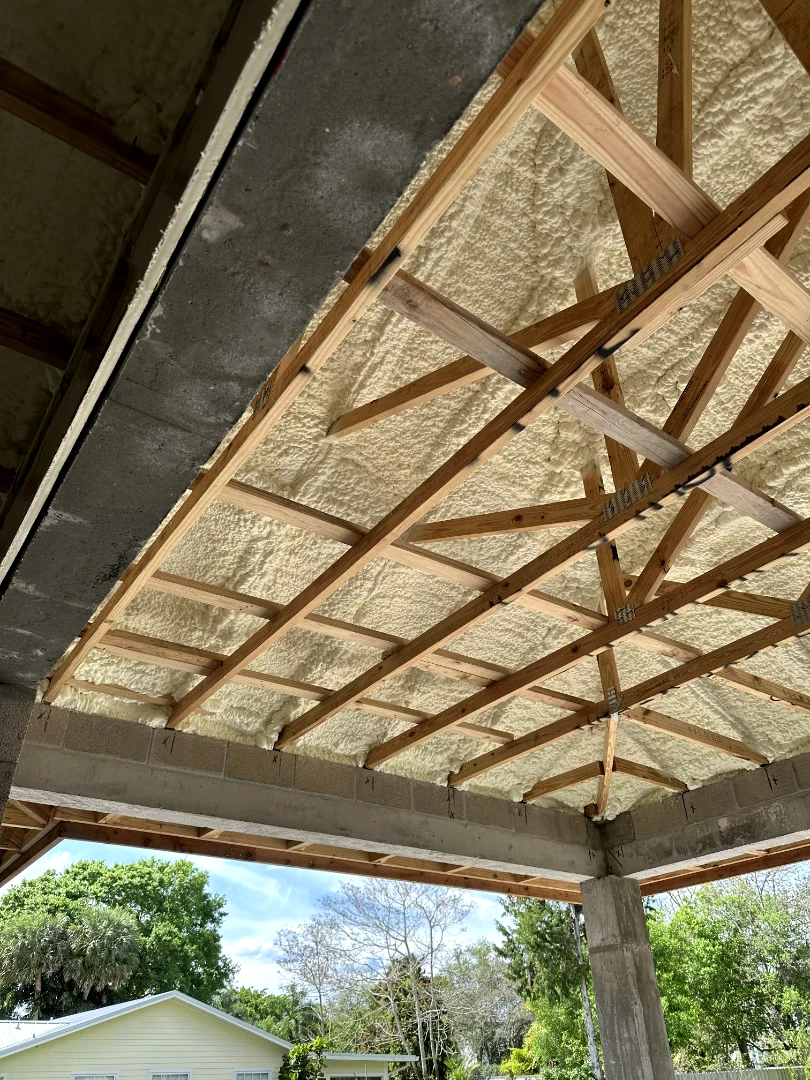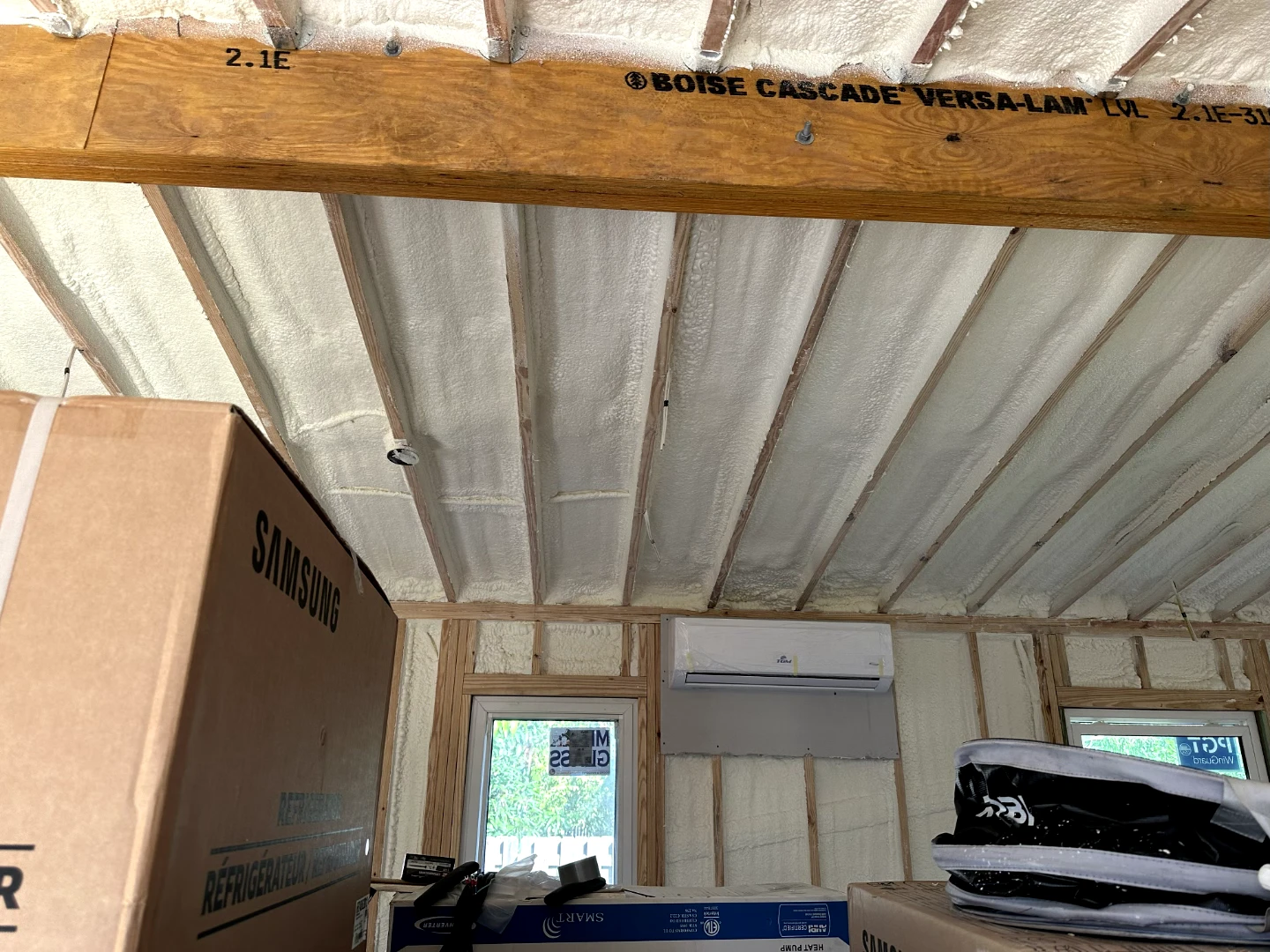
Imagine stepping into your newly built Jupiter home, envisioning a future of comfort and tranquility. Now, picture that dream enhanced by an invisible shield that keeps your home refreshingly cool in the summer, cozy in the winter, and peaceful all year round. With an expert new construction insulation contractor, this vision becomes a tangible reality, creating an environment of unparalleled comfort and energy efficiency from the moment you move in. Discover how starting with the right insulation in your Jupiter home and surrounding areas sets the foundation for a lifetime of savings, health, and sustainable living.
Investing in high-quality insulation during the construction phase is one of the most impactful decisions you can make for your new property. It’s a foundational step that pays dividends for years to come, influencing everything from your monthly energy bills to your daily comfort. Properly installed insulation creates a thermal envelope that minimizes heat transfer, meaning your HVAC system doesn't have to work as hard to maintain a consistent temperature. This translates directly into significant energy savings over the life of your home.
Beyond just temperature control, professional insulation acts as a powerful sound barrier, reducing noise from outside and between rooms. This is especially beneficial in bustling neighborhoods or for creating peaceful home offices and bedrooms. Furthermore, a well-insulated home can see an increase in its overall property value. Prospective buyers are often drawn to homes with lower energy costs and the promise of a comfortable living environment, making your initial investment a wise one for the future.
Reduced Energy Consumption: Minimizes heat loss in the winter and heat gain in the summer, leading to lower utility bills.
Enhanced Indoor Comfort: Maintains a consistent and comfortable temperature throughout your home.
Improved Air Quality: Helps to prevent the infiltration of outdoor pollutants and allergens.
Noise Reduction: Creates a quieter indoor environment by dampening sound transmission.
Structural Protection: Reduces the risk of moisture damage and mold growth within walls and attics.
Increased Property Value: A well-insulated home is more attractive to potential buyers.
Environmental Sustainability: Lower energy usage reduces your home's carbon footprint.
Long-Term Durability: Quality insulation protects your home’s structure for years to come.

Achieving optimal insulation in a new build is a meticulous process that begins long before the insulation is installed. It starts with a thorough assessment of your building plans to identify all areas that require thermal protection. From there, a customized insulation strategy is developed to ensure every space is properly sealed and insulated to the highest standards. The goal is to create a continuous, unbroken thermal barrier that effectively separates the conditioned living spaces from the unconditioned outdoors.
The installation phase is carried out with precision and attention to detail. Whether using spray foam, fiberglass, or other advanced materials, the application is seamless and comprehensive. The process includes sealing all air leaks around windows, doors, and utility penetrations before the insulation is even put in place. This crucial step of air sealing is what truly maximizes the performance of the insulation, preventing costly energy loss that can occur even in a well-insulated home.
The effectiveness of your home's insulation largely depends on the quality of the materials used. A variety of options are available, each with its own unique properties and benefits. Two of the most common and effective materials for new construction are spray foam and fiberglass insulation. Both offer excellent thermal resistance and can be adapted to suit different areas of a new home.
Spray foam insulation is known for its ability to create a superior air seal. As it is applied, it expands to fill every crack and crevice, forming an airtight barrier that is highly effective at preventing air leakage. Fiberglass insulation, available in batts and rolls, is a cost-effective and widely used material that provides excellent thermal performance when installed correctly. The choice between these materials often depends on the specific application, budget, and desired performance level for your new home.
Polyurethane foam is a versatile and highly effective insulation material. It comes in different forms, with the most common being open-cell and closed-cell spray foam.
Open-Cell Spray Foam: This type has a more flexible and spongy texture. It's excellent for sound dampening and is often used in interior walls.
Closed-Cell Spray Foam: Denser and more rigid, this foam provides a higher R-value per inch and acts as a vapor barrier, making it ideal for exterior walls and areas prone to moisture.
To create a truly energy-efficient and comfortable home, it's essential to insulate all the right places. The primary areas of focus are those that make up the building's "thermal envelope," which is the boundary between the heated or cooled interior and the outside environment.
Attics: A significant amount of heat loss and gain occurs through the roof, making attic insulation crucial.
Exterior Walls: Insulating the walls of your new home is vital for maintaining a stable indoor temperature.
Floors: Insulating floors above unheated spaces like garages or crawl spaces prevents cold floors in the winter.
Basements and Crawl Spaces: Proper insulation in these areas helps control moisture and temperature fluctuations.
Garages and Workshops: Insulating these spaces can make them more comfortable and reduce energy loss from the main house.
Cathedral Ceilings: These require careful insulation to prevent heat loss and ensure comfort.
Metal and Wood Frame Buildings: These structures have unique insulation needs that must be addressed to ensure energy efficiency.
Properly installing new construction insulation requires specialized tools and equipment to ensure a precise and effective application. For materials like fiberglass batts, tools such as utility knives, straightedges, and staple guns are essential for a snug and secure fit. This ensures that there are no gaps or compression of the insulation, which could reduce its effectiveness.
For spray foam insulation, the process involves more complex equipment. High-pressure spray systems are used to apply the two-component polyurethane foam, which requires professional training and handling. Regardless of the material, safety is paramount. Personal protective equipment, including masks, safety glasses, and gloves, is always used to ensure a safe installation process.
In Jupiter, FL, building a home that can withstand the heat and humidity is essential. The local climate demands an insulation strategy that prioritizes cooling efficiency and moisture control. With a deep understanding of the specific building codes and environmental challenges in Jupiter and the surrounding Palm Beach County area, a tailored insulation plan can be developed for your new home. This local expertise ensures that your insulation will perform optimally for years to come.
From Wellington to Stuart and Loxahatchee to Okeechobee, the unique climate of South Florida is always a primary consideration. A new home built in this region requires an insulation solution that not only keeps the cool air in but also keeps the humid air out. This approach helps to prevent moisture-related issues and ensures your home remains a comfortable oasis, no matter the weather outside.
Ready to lay the foundation for a long time of comfort and energy savings in your new home? Contact ALL IN OVERHALL today for a free quote for your new construction insulation project in Jupiter, FL, and the surrounding areas.
Phone: (561) 406-3835
Email: [email protected]
Insulation is crucial in new homes in Jupiter, FL, for energy efficiency, comfort, and soundproofing. It helps maintain a consistent indoor temperature, reducing your heating and cooling costs from the very beginning.
The best type depends on your specific needs and budget, but spray foam and fiberglass are both excellent choices for new construction, offering superior thermal performance and air sealing.
Insulation is typically installed after the framing, plumbing, and electrical work are complete, but before the drywall is put up.
Yes, certain types of insulation, like spray foam and fiberglass, are very effective at reducing sound transmission between rooms and from the outside.
By creating a tight seal, insulation helps to prevent outdoor allergens, dust, and pollutants from entering your home, contributing to healthier indoor air.